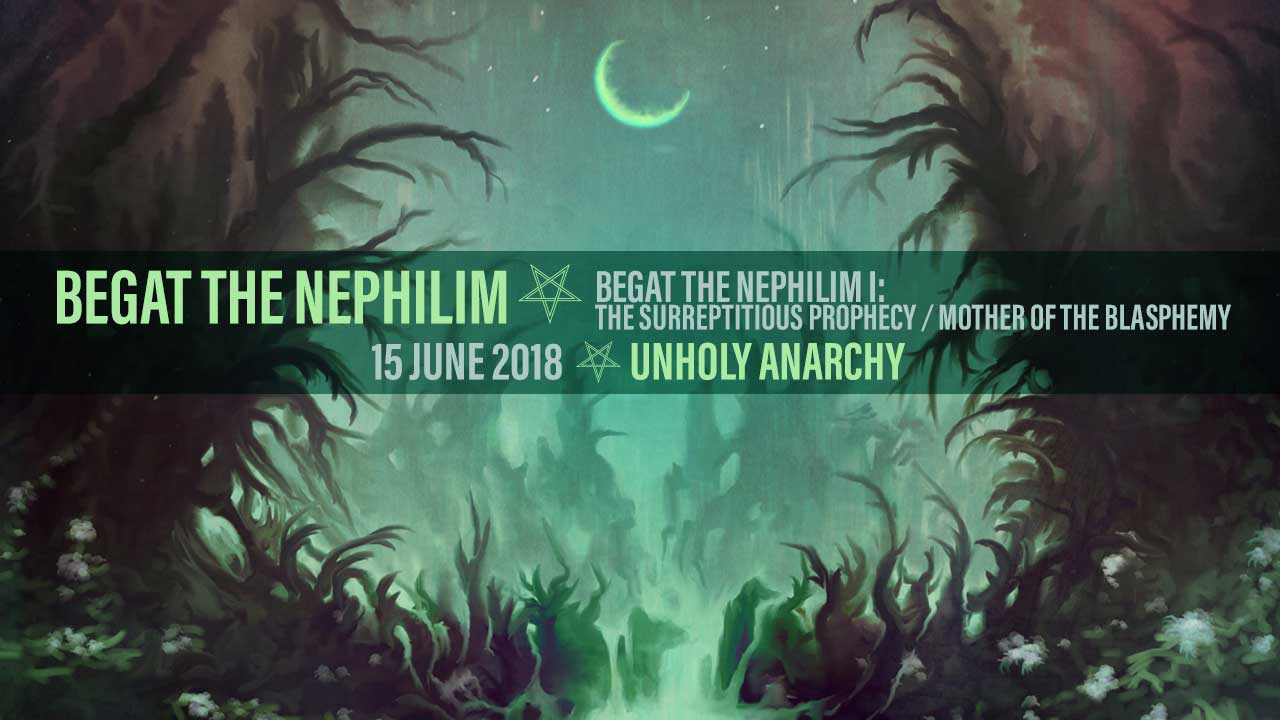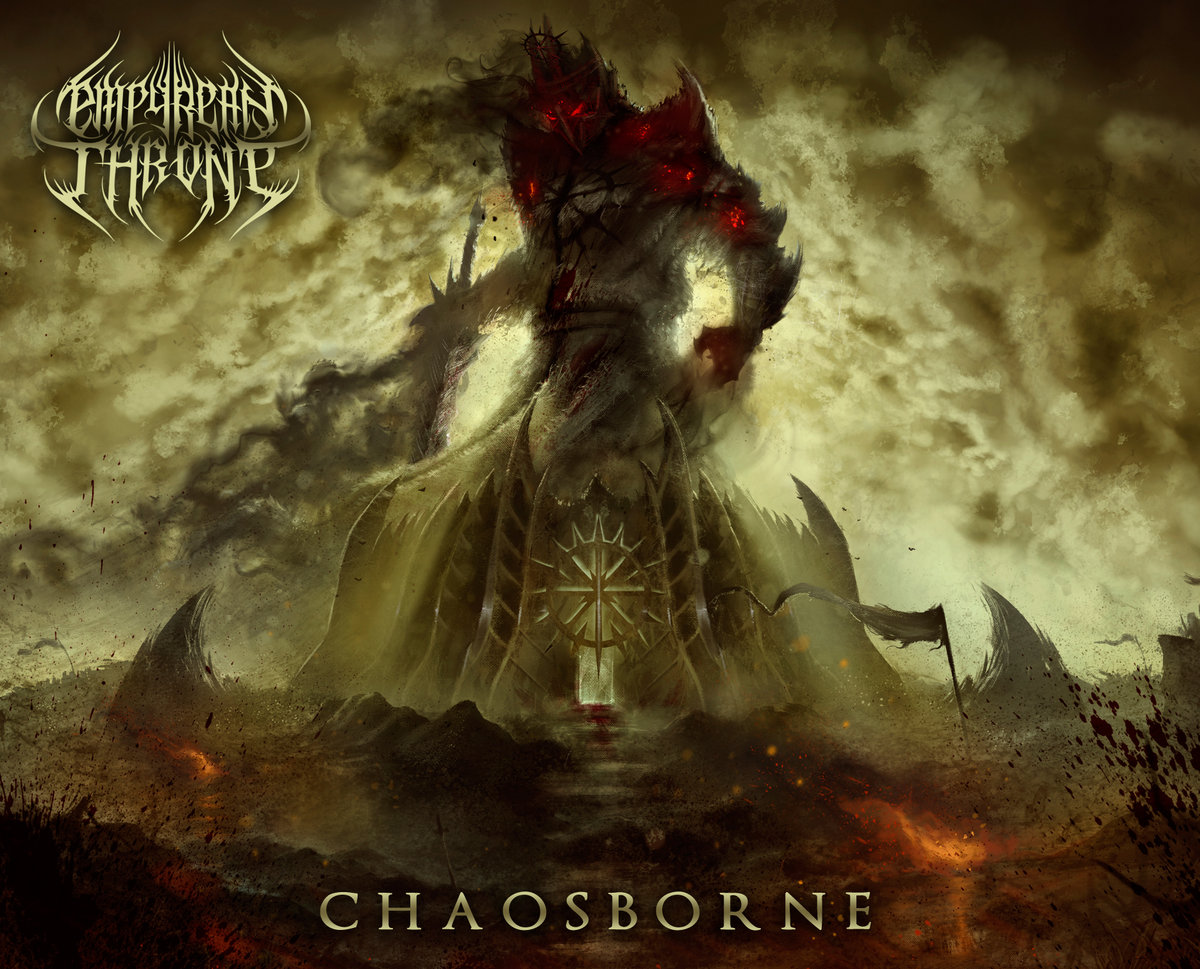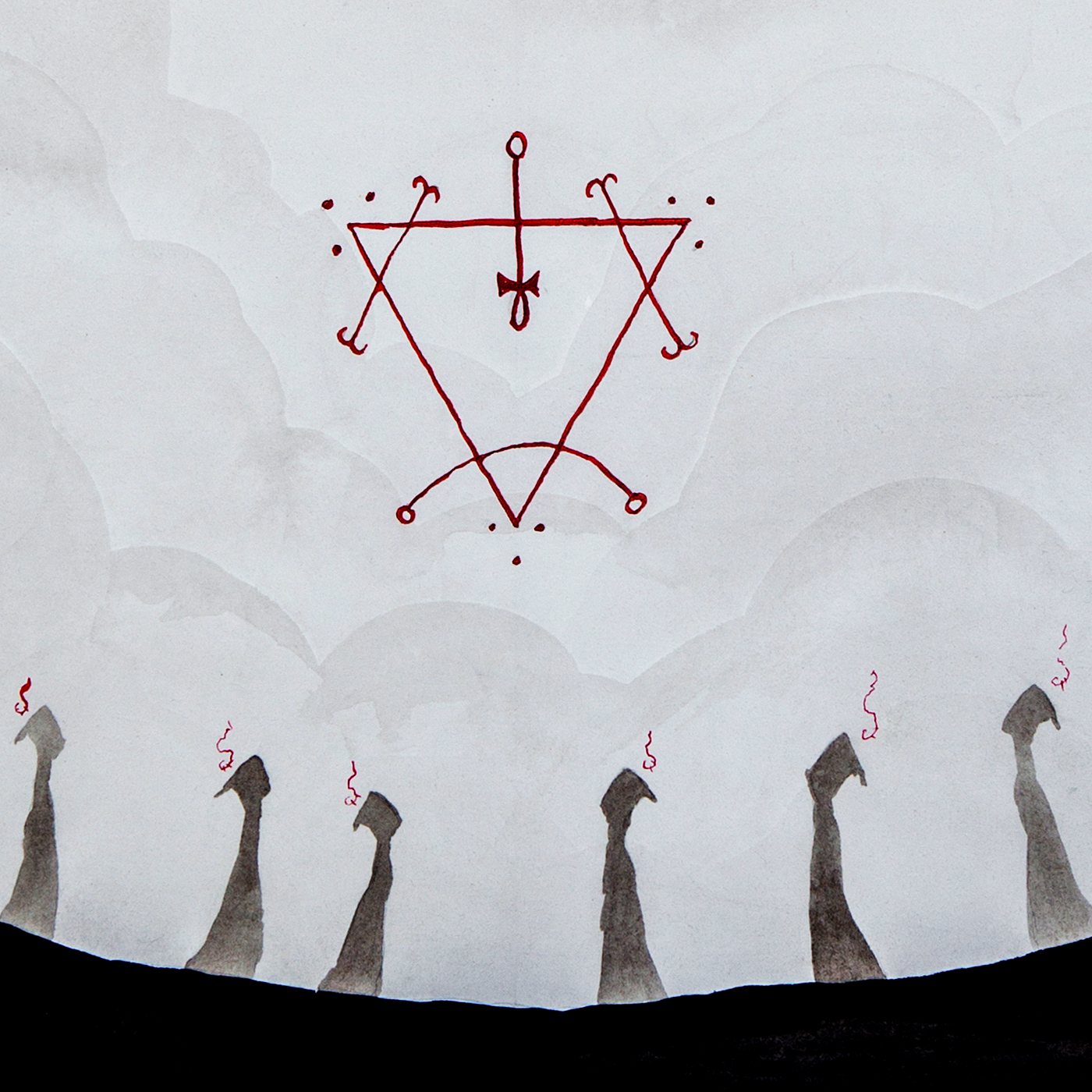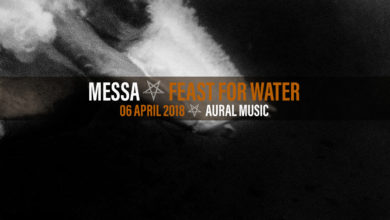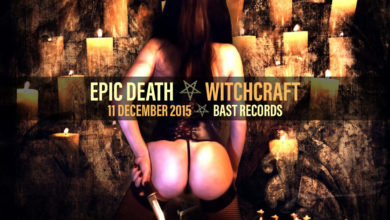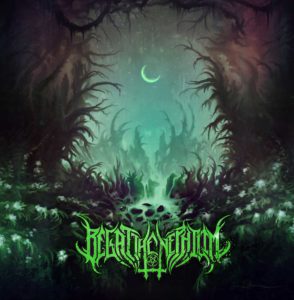 Begat the Nephilim are relative newcomers to the land of signed acts and international press. Formed in 2012, the band hail from Dover, NH, a shining beacon of metal in sleepy New England. This is their first LP entitled I: The Surreptitious Prophecy/Mother of the Blasphemy. Anyone who can say that successfully a dozen times in a row is truly a master of the spoken word. The definition of surreptitious is “kept secret, especially because it would not be approved of,” and one has to wonder in what way that relates to the album’s experience as well as who the “Mother of the Blasphemy” truly is and what her role in all of this is. Perhaps we shall find out when commencing to listen to the album. Or not.
Begat the Nephilim are relative newcomers to the land of signed acts and international press. Formed in 2012, the band hail from Dover, NH, a shining beacon of metal in sleepy New England. This is their first LP entitled I: The Surreptitious Prophecy/Mother of the Blasphemy. Anyone who can say that successfully a dozen times in a row is truly a master of the spoken word. The definition of surreptitious is “kept secret, especially because it would not be approved of,” and one has to wonder in what way that relates to the album’s experience as well as who the “Mother of the Blasphemy” truly is and what her role in all of this is. Perhaps we shall find out when commencing to listen to the album. Or not.
The album debuts with “L’inizio,” a track showing off a very slick production, mountains of guitar and a style that could be labeled as Somewhat-Blackened Melodic Death Metal, also a name for signature hash browns at Waffle House. If you’re scratching your head wondering what Waffle House is, jump in your car and drive below the Mason Dixon line for some of the best greasy-spoon-fed, dripping in butter goodness ever served up by a short order cook trying to put his life back together after being released from prison for attempted murder two weeks ago. I digress. The second track, “Cardboard Casket,” begins with a cheeky horror movie-themed instrumental that gives way to some arpeggios from the guitar with a burst/blast from the drums. After a melodic solo, the main riff thrives in intricate syncopation. The keyboard-led instrumentals that supposedly add atmosphere trouble the sound. It’s just too much, and one cannot help but wonder what this band truly is? What are they going for? It does not sound sincere, and this is a genre where bands are made or broken on such sentiments. It just seems like a studio trick to add some “spooky” to the breakdown-filled, highly-processed-bass-drum-laden stew.
“Drek,” the fourth track, starts off with an instrumental that yet again would seem to fit better on a Cradle of Filth LP. This instrumental, however, contains a formula in contrast to the rest of the album: a main riff that is developed by the band that comes across as thick and chunky as they all sound better-focused dealing with one thing at a time. The seventh track, “Mobin,” opens up with a beautiful acoustic interlude in the middle that soon gives way to a Metalcore-type riff over which a well-thought-out melodic solo is constructed and surely aided by multi-tracking and harmonizing. “Grimoire of Cryptid,” the eighth track comes across as riffs cut and pasted together and is surely the best example of the worst qualities of the band on this recording. The song does not seem to have any unifying principle. Sadly, the vocals come across as almost silly were they intended to invoke the comedic, and the delivery mainly mirrors that slimy cretin, Gollum, portrayed by Andy Serkis, from the Tolkien movies.
Instrumentally the album sounds a bit transparent as there is lots of bass and treble but a distinct lack of mid-range frequencies as extremes in sound squash girth. The lack of mid-range extremely affects the bass which, despite some brief and impressive runs, struggles to find its place in the mix. Vocally, it ranges from guttural growl to shrieks and ultimately sounds like a hybrid of “Legion”-era Deicide and Black Dahlia Murder. The drums feature a super-modern production as the sound is filled primarily of solely bass drum and without the most organic of tones. Lastly, the guitars tend to flood the sound of the album, yet like the other instruments lack the required sonic spectrum for the genre. The extremely well-articulated rhythms and expertly-crafted leads cannot by their lonesome save the record from its identity crisis and lack of direction no matter how impressive.
Ultimately, the album is simply too focused on breakdowns and solos! Where are the songs? Sadly, the band seems to have written their own fortune in the album title for this is a secret that cannot in large be approved of. They aren’t a bad band, but in the effort to have the most complex and sickest parts, the songs lack anything that truly buries itself into the listener’s mind. I’m still lost as to who the “Mother of the Blasphemy” is.

